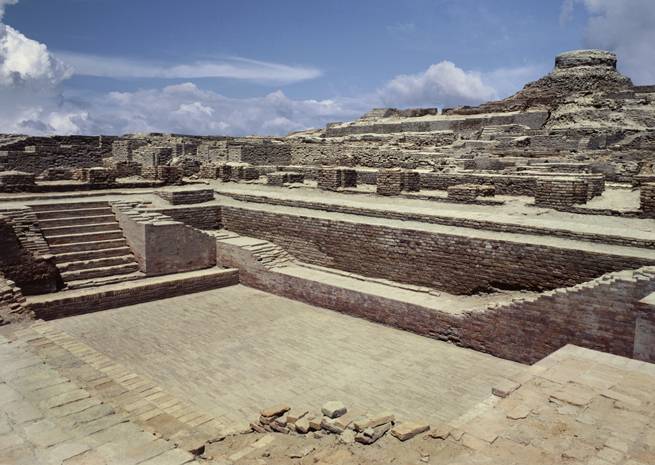It is a tragedy that students in Pakistan grow up reading blatant lies about history in their textbooks. This misery is compounded by the assertion made by textbook writers, journalists, certain writers and politicians, that Pakistan is somehow a uniquely blessed country with more ‘potential’ than the rest of world combined. This myth includes Pakistan’s ‘unique’ geopolitical important and how successive leaders (civilian politicians) have been unable to harness this incredible opportunity. It is rather unfortunate that this myth-making was started by none other than the veritable Mr Jinnah. In an interview with American journalist Margaret Bourke-White, he proclaimed: “Pakistan is the pivot of the world, as we are placed at the frontier on which the future position of the world revolves. Russia is not so very far away.” Furthermore he spoke of America’s interest in arming Greece and Turkey and expressed the hope that the United States would pour money and arms into Pakistan as well. To quote Margaret Bourke-White: ‘In Jinnah’s mind this brave new nation had no other claim on America’s friendship than this—that across a wild tumble of roadless mountain ranges lay the land of the Bolsheviks. I wondered whether the Quaid-e-Azam considered his new state only as an armoured buffer between opposing major powers.’
To clear up the confusion, there is nothing ‘special’ about Pakistan’s geographical location. It was as true in 1947 as it is now (when USSR hadn’t split into multiple pieces and East Pakistan was in proximity with East Asia). This myth was propagated by people who were still thinking in terms of the ‘Great Game’, a cat-and-mouse tactical battle in Asia between the British and Russian empires during nineteenth century. It reflects poorly on our geography teachers that a majority of Pakistan’s educated youth believes in this myth. Pakistan doesn’t connect two continents like Turkey does with Europe on one side and Middle East on the other. We are not located between two great powers like Mongolia, which is sandwiched between China and Russia. We are not like Ukraine, which serves as a frontier for EU countries against Russia. We have China, India, Afghanistan and Iran as neighbours and we don’t seem to get along with anyone of these with the exception of China. Our leaders (starting from Mr. Jinnah) tried to sell the country to the United States as a ‘bulwark against Communism’ when there was no threat of communist aggression in the region. We billed ourselves as a key defence post for Middle East in the 1950s and became members of SEATO (Southeast Asia Treaty Organisation) which comprised of Australia, France, New Zealand, Pakistan, the Philippines, Thailand, the United Kingdom, and the United States (Spot the odd one out).
When American dollars stopped coming after our misadventure in Kashmir circa 1965, we turned our attention towards the ‘Islamic world’. Russian entry into Afghanistan during 1979 was a godsend for Pakistan and the tap from which greenbacks flowed was turned on for ten more years. In the 1990s, the relations soared due to multiple reasons and our economy was in the doldrums. It was only after 9/11 that we decided to ‘help’ American fight its ‘War on terror’ while we harboured dangerous terrorists in our country. All our future plans are now hinged upon China, our next ‘Maai-baap’ or patron.
It is due to such rent-seeking behaviour that we have always looked for ‘benefactors’ who could support our outrageous demands while we sit and relax, basking in the glory of our ‘unique geopolitical importance’.
As a result of our foreign policy ‘adventures’ in neighbouring countries, there is a negative image of Pakistan around the world. A recent survey revealed that Pakistanis are well-liked in only two countries in the world. Our passports and the treatment meted out to Pakistani passport-holders at foreign embassies and airports is a reflection of how the world sees us. What we have in abundance is a young population, devoid of motivation and ideas. We force-feed half-truths and blatant lies to our younger generations and expect them to lead the world. That is not going to happen anytime soon. Young people want a good education, job security, places for entertainment, interaction with the outside world and a chance to showcase their potential. Instead, we have given them substandard education, xenophobia, fake religiosity, conspiracy culture and hopelessness in the political system. Some of the brightest students used to opt for joining a career in civil services. The same ‘bright students’ have messed up the country for the last sixty seven years and counting. Now the bright students are planning to spend a better life by moving abroad.
We need to teach our students about the land we belong to, the Indus valley civilisation, how men from our land provided the world with culture and wisdom, how we faced external invaders who overstayed their welcome, the way certain societal trends still haven’t changed (such as the caste system), the sons of this soil who gave up their lives fighting foreign invaders, the entry of British merchants and later soldiers, how some of our men fought their battles during World Wars, how religion was used as a destructive force before partition and the havoc it wreaked on this land, the chequered history of Pakistan warts and all. We are not descendants of foreign invaders, we belong to this land, which is our motherland. We are not really unique from other peoples inhabiting other countries. However, we can distinguish ourselves by hard work, by being honest to ourselves and our work and by believing in ourselves. Unique geographical location means nought if you don’t have a culture where work becomes a form of prayer.






